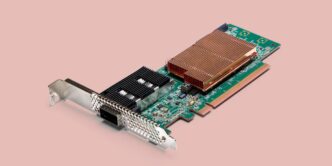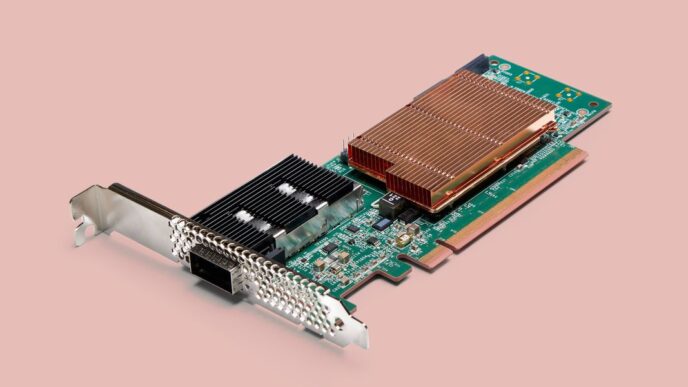Alexandr Wang steps down as Scale CEO to lead Meta’s new "superintelligence" AI push
On June 12, Scale AI founder Alexandr Wang left his CEO role to head Meta’s fresh "superintelligence" division. Meta is backing this move with a $14.3 billion investment for a minority stake in Scale AI. The real win: Wang himself.
Wang, 28, arrives at Meta amid hiccups in its AI rollout and growing competition from Chinese firms like DeepSeek. Though he’s not the typical academic, Wang’s drive and insight into AI data have made him a coveted talent. Reports say Google and OpenAI are cutting ties with Scale following the Meta deal. Scale is keeping quiet but says it will remain independent under new interim CEO Jason Droege.
Wang blew up Scale’s valuation by treating data as a "first-class problem." But his growth-first approach has faced pushback over delayed payments to Scale’s 240,000+ contract workers. Former co-founder Lucy Guo left in 2018 partly over this clash, but Scale claims late payments are rare and improving.
Wang co-wrote a March policy paper calling superintelligent AI “the most precarious tech development since the nuclear bomb." At Meta, Wang will shape crucial AI safety and advancement decisions.
TIME interviewed Wang pre-Meta about his leadership and AI future. Wang detailed his hands-on style:
"Leadership is a very multifaceted discipline, right? There’s level one—can you accomplish the things that are right in front of you? Level two is: are the things that you’re doing even the right things? Are you pointing the right direction? And then there’s a lot of the level three stuff, which is probably the most important—what’s the culture of the organization? All that kind of stuff."
"I definitely think my approach to leadership is one of very high attention to detail, being very in-the-weeds, being quite focused, instilling a high level of urgency, really trying to ensure that the organization is moving as quickly and as urgently towards the critical problems as possible."
"But also layering in, how do you develop a healthy culture? How do you develop an organization where people are put in positions where they’re able to do their best work, and they’re constantly learning and growing within these environments. When you’re pointed at a mission that is larger than life, then you have the ability to accomplish things that are truly great."
Wang has long warned about China’s AI progress and predicts a future where AI agents run much of the economy, government, and warfare. He says:
"I think, the agentic world—one where businesses and governments are increasingly doing more and more of their economic activity with agents; that humans are more and more just feeling sort of like managers and overseers of those agents; where we’re starting to shift and offload more economic activity onto agents."
"I think it definitely sounds scary when you talk about it, and I think that’s sort of like an indication that it’s not going to be something that’s very easy to accomplish or very easy to do."
On the U.S. government’s AI readiness, Wang praises the current administration’s focus on high-speed progress and worker benefits:
"I think AI is very, very top of mind for the administration, and I think there’s a lot of trying to assess: What is the rate of progress? How quickly are we going to achieve what most people call AGI? Slower timeframe, faster timeframe? In the case where it’s a faster timeframe, what are the right things to repair? I think these are major conversations."
"If you go to Vice President JD Vance’s speech from the Paris AI action Summit, he speaks explicitly to this, the concept that the current administration is focused on the American worker, and that they will ensure that AI is beneficial to the American worker."
Wang dismisses fears that AI will replace data annotation jobs. Instead, he says demand keeps climbing:
"I actually think it’s quite the opposite. If you look at the growth in the AI related jobs around contribution to AI data sets—there’s a lot of words for this, but we call them ‘contributors,’—it’s grown exponentially over time."
"So my expectation actually is, if you draw a line forward, towards an agentic economy, more people actually end up moving towards doing what we’d currently consider AI data work—that’ll be an increasingly large part of the economy."
Why can’t AI automate data work yet? Wang explains:
"Automating AI data work is a little bit of a tautology, because AI data work is meant to make the models better, and so if the models were good at the things they were producing data for, then you wouldn’t need it in the first place. So, fundamentally, AI data is all focused on the areas where the models are deficient."
"You can stand back and squint and the AI models seem really smart, but if you actually try to use it to do any of a number of key workflows in your job, you’d realize that’s quite deficient."
Wang credits Scale’s success to building a platform that treats data as a core problem with tech-first solutions:
"Before Scale, there weren’t companies that treated data as the first-class of a problem it really is. With Scale, one of the things that we’ve really done is treat data with the respect that it deserves."
"I think that’s really what set us apart."
Wang’s Meta leap signals a new AI sprint at the company once known as Facebook. The stakes: building superintelligent AI without blowing it up.
Read Jason Droege’s blog post on Scale’s independence
Washington Post report on Scale’s contract worker payments
Meta AI model delay coverage
Policy paper on superintelligence risks














